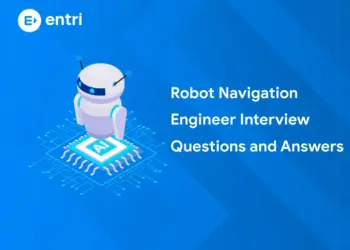Table of Contents
During the pre-colonial period, the Mughals and other local rulers had authoritarian governments with distinct or official police forces. To defend towns at night, watch-guards have existed since the dawn of mankind. Later, during the Mughal era, there were faujdars who contributed to keeping the peace and amils who primarily collected taxes but occasionally had to deal with rebels. Law and order in the cities were to be maintained by the kotwal.
Below is a timeline of the introduction of CID, police intelligence reforms, and other British-era innovations in the police system:
- Between 1765 and 1772: In order to preserve law and order, maintain the peace, and deal with crime and criminals, the zamindars of Bengal, Bihar, and Orissa were required to keep the staff, which included thanedars. However, the zamidars frequently disregarded their obligations. They even allegedly split their wealth and conspired with dacoits.
- The faujdar and amil institutions were eliminated in 1770 AD
- Warren Hastings reinstated the faujdar institution in 1774 AD and urged the zamindars to help them put an end to dacoits, violence, and disorder.
- Faujdar thanas were formed in large districts’ principal towns in 1775 AD, with the assistance of a number of lesser police stations.
- In order to restore and modernize the traditional Indian system of thanas (circles) in a district, Cornwallis organized a regular police force to uphold law and order in 1791. Each district was led by a daroga (an Indian) and a superintendent of police (SP). He released the zamindars from their oversight of the police.
- 1808: Mayo appointed an SP for each district with the assistance of several goyendas, but these goyendas preyed upon the local populace.
- In all of the Company’s domains outside of Bengal, the appointment of darogas and their subordinates was terminated in 1814 by decree of the Court of Directors.
- The Police Act of 1861 was created in order to reorganize the police and make it a more effective tool for crime detection and prevention.
- In 1902-03 during the rule of Lord Curzon, the Police Commission was founded for the Police reforms under Sir Andrew Frazer. The Department of Criminal Intelligence (DCI), which later became the primary internal and foreign intelligence agency, was attached by Lord Curzon to the Government of India at the Center. All of British India’s provinces had Criminal Investigation Departments (CIDs) established at the provincial level.
- The “Father of Indian CID” is Rai Bahadur Pandit Shambhu Nath, a recipient of both the King’s Police Medal and the Member of the British Empire (MBE). The CID was divided in 1929 into the Special Branch, CID, and the Crime Branch (CB-CID).
The fundamental structure of Indian domestic intelligence was established and held until 1947, when India attained independence.
Police Reforms in India
In India, there has been discussion on police reform for more than 30 years. However, not much has changed in the nation during the past several decades.
Police reforms aim to change the values, culture, policies, and practices of police organizations so that police can perform their duties with respect for democratic values, human rights, and the rule of law. They also aim to improve interactions between the police and other security sector players, such as the courts and corrections departments, as well as with executive, parliamentary, or independent authorities with management or oversight responsibilities.
The Indian police are not favorable to the people because they fall within the state list of Schedule 7 of the Indian Constitution and are founded on colonial legislation. Duty of Police:
Primary Duty:
- Maintain Law and Order.
- Keep Internal Security.
- Criminal Investigation.
Secondary Duty:
- Police involve in VVIP movement
However, we have witnessed instances where police connections and political intervention force their principal responsibility to shift from primary to secondary, and vice versa.
Attempt Free General Knowledge Mock test! Download Entri App!
Police Reforms History
1: Who was the first woman President of India?
The British administration implemented pre-independence police reforms in 1902–1903. The first committee at the national level established by the Indian government to report on policing was the “National Police Commission,” which was known as “after independence” or “post-independence” for the first police reforms in 1977. Between 1979 and 1981, the NPC produced eight reports with proposals for significant changes to the way the police are currently organized. The Model Police Act was one of the most significant of these recommendations, but the government rejected them all.
A former DGP of Uttar Pradesh brought a public interest lawsuit to the Supreme Court in 1996, calling for police reforms. In a historic decision, the Supreme Court ordered all of the States and Union Territories to implement police reforms in September 2006. In this ruling, the Supreme Court ordered the States and Union Territories to follow seven binding orders that would serve as the reforms’ springboard.
The seven directives are:
- Limit political influence: Ensure that the state government does not exert inappropriate pressure or influence on the police.
- Appoint on merit: Ensure that the Director-General of Police is appointed on merit and has a minimum tenure of two years.
- Fix minimum tenure: Ensure that additional police officers performing operational duties, such as district-level superintendents of police and station house officers in charge of police stations, are likewise given a term of at least two years.
- Separate police duties: Distinguish the duties of investigating crimes and upholding the law.
- Set up fair and transparent systems: Create a Police Establishment Board to decide and make recommendations on transfers, postings, promotions, and other service-related matters for police officers up to and including the rank of Deputy Superintendent of Police.
- A Police Complaints Authority should be established in each state: In cases of significant misbehavior, such as custodial death, grievous injury, or rape in custody, there should be a Police Complaints Authority at the state level to look into public complaints against police officials of and above the rank of Superintendent of Police. The Police Complaints Authority should be established at the district level to look into complaints from the general public against police officers and those who have reached the rank of Deputy Superintendent of Police in cases of serious misconduct.
- Establish a selection commission: At the union level, a National Security Commission must be established to prepare a panel for the selection and placement of Central Police Organization chiefs with a minimum tenure of two years.
Prepare for General Knowledge Exam! Download Entri App!
Free UPSKILLING Courses!
Take your first step toward mastering in-demand skills, acing interviews, and securing top-tier jobs with Entri's free upskilling courses.
Start Learning!The need for Police Reforms
In the wake of the 1857 uprising, the Police Act, 1861, which established the fundamental structure of the Indian police system, was created in 1861. However, society has advanced greatly, particularly in the years after independence, and the public’s expectations of the police have fundamentally altered. The nature of crimes committed has also changed drastically as a result of elements like technology that affect both crime and investigation. A colonial government-instituted system with roots in the 19th century has to be changed immediately.
The nation’s police system needs to be modernized and upgraded in order to remain relevant in today’s times and circumstances.
Police Reform Committee
On police reform, there have been numerous committees or commissions. Below is a discussion of some of the major commissions and their recommendations.
National Police Commission (NPC)
The NPC was established in 1977 with a broad scope of work that included public relations, public relations, police organization, roles, and functions, etc. Eight reports were generated by the NPC between 1979 and 1981.
Major recommendations:
- Judicial investigation of allegations of rape in custody, injury, death, and deaths in the event of police firing.
- Gross power abuse was the result of political intervention in police activity. The NPC recommended a few steps to keep this impact on police activity to general policies and guarantee that police performance is legal.
- It suggested actions to increase the police’s sensitivity to the demands and grievances of society’s outcasts.
- The NPC has recommended a significant change to Section 154 of the Criminal Procedure Code, which would require every police station to file a FIR regardless of whether the crime occurred within its jurisdiction and to transfer the FIR to the appropriate police station if necessary.
- Police measures to cut back on third-degree tactics.
- The report advocated for the eventual cessation of all recruiting, with the exception of those for the IPS and constable positions.
- The Police Act of 1861 should be replaced by a new Police Act that expands the functions of the police to include serving the community impartially and promoting the rule of law in addition to altering the system of supervision and control over the police.
Most of the NPC’s recommendations have not been put into practice.
Ribeiro Committee
- In 1998 and 1999, the committee delivered two reports.
- It supported the NPC’s recommendations but made certain changes.
Padmanabhaiah Committee
- Over 240 recommendations were included in the report that the committee published in 2000.
- 23 of these recommendations weren’t followed through on. These had to do with the entry age for IPS officers, the system of city police commissioners, the requirement that those who weren’t appointed as DIG retire, etc.
Malimath Committee
This committee’s 2003 report on the Indian criminal justice system was turned in.
Attempt Free General Knowledge Mock test! Download Entri App!
Problems with the Police System
There are numerous issues with the way the Indian police are organized and run. The following discussion covers a few of the crucial ones.
Politician – Police – Criminal Nexus
- The executive has power over the police forces under the existing system.
- State governments are in charge of the state police forces, whereas the Union Home Ministry is in charge of the central police forces (such as the CRPF, ITBP, SSB, BSF, Assam Rifles, CISF, and NSG).
- Over time, the executive has had the ability to abuse its position of authority and employ the police for purposes that are either personal or political.
- As a result, police officers conduct their jobs in a prejudiced manner.
- The Second ARC Report made a note of this.
- The criminalization of politics has been a connected phenomenon.
Overburdened Police Force
- The central and state police forces in India are understaffed.
- The state forces had 5.5 lakh vacancies, or 24% of the total, as of January 2016, while the central forces had 7% of the total.
- In India, there are 137 police officers for every lakh people, despite a sanctioned manpower of 181. And when compared to the 222 personnel per lakh people threshold that the United Nations recommends, this is egregiously insufficient.
- As a result, the staff has unpleasant working circumstances with excessive workloads and extended workdays.
- Additionally, women are not adequately represented in the police force. They make up less than 7% of the police, which is much too few when it comes to the number of crimes involving women.
- All of this has a negative impact on the force’s efficacy and efficiency.
Police Accountability
- Numerous complaints have been made about the police, including complaints about illegal searches, illegal arrests, abuse while in custody, and even custodial rapes and fatalities.
- Recent instances of “encounter” killings, such as the death of a father and son in Thoothukudi, as well as allegations of in-custody torture have raised severe concerns about the police force’s integrity.
- Police are charged with misusing their authority and repressing the same people they are tasked with defending.
- Additionally, there are accusations of corruption against police officers.
- Internal police accountability issues must be resolved, as well as external independent scrutiny.
Prepare for General Knowledge Exam! Download Entri App!
Inadequate Resources
- When considering the vast and diverse obligations that the police forces must carry out, it becomes clear that they are severely underfunded.
- Multiple state police units have a shortage of weaponry, according to CAG audits.
- Additionally, there is a shortage of police cars.
- Along with other things, the infrastructure has to be updated to assist police officers in solving crimes more quickly.
Constabulary related issues
- 86% of the police force is made up of constables.
- The duties of a police constable include more than just doing the bare minimum; they also require some judgment and decision-making.
- The current system of hiring, however, is insufficient to find candidates qualified to do the responsibilities required.
- It has been suggested that the present eligibility requirements (X or XII pass) be changed to better meet the needs.
- Additionally, a police constable often retires as the head constable and receives only one promotion throughout his career.
- This could lead to a loss of motivation at work.
Crime Investigation
- Investigating crimes involves knowledge and experience, as well as the right forensic infrastructure and resources.
- However, due to a lack of resources and an excessive workload, state police personnel frequently fail to fulfill this duty, according to the Law Commission and the Second Administrative Reforms Commission.
- Additionally, they lack the knowledge and experience necessary to conduct effective investigations.
Police-Public Relations
- Police officers are required to interact with the public while carrying out their jobs.
- Additionally, they require public assistance in carrying out their responsibilities, such as resolving crimes and upholding peace and order.
- The public lacks confidence in the police because they are frequently viewed as corrupt, ineffective, and politically partisan.
Candidates have a platform provided by Entri App to increase their knowledge and sharpen their preparation for the multiple government exams that are held in different industries for various chances. Entri also provides access to a large number of past-year test questions and practice exams. Candidates can prepare for exams in both regional and local languages. Start utilizing entri right away to enjoy a variety of advantages. You will receive information and suggestions on subjects that are significant to you from our experts. Download our app now to sign up for one of the numerous programs we offer. Use the app to stay current on many aspects of the topic you are interested in. Please feel free to leave any worries or inquiries in the comments section.














